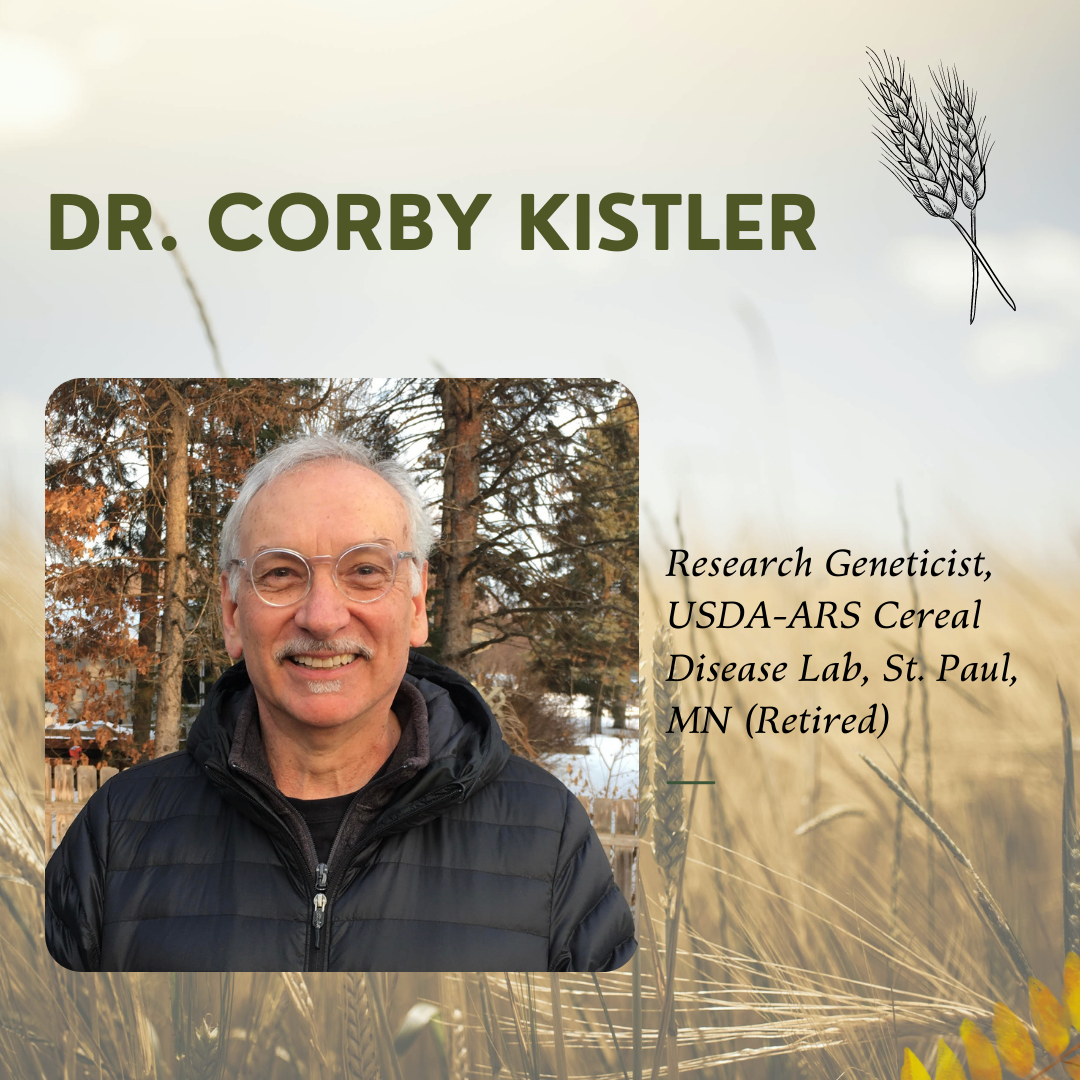Featured Researcher Bio - Corby Kistler March 2022

Meet H. Corby Kistler, Ph.D., recently retired research geneticist of fungal pathogens at the USDA-ARS Cereal Disease Laboratory in St. Paul, Minnesota. Dr. Kistler has been a U.S. Wheat and Barley Scab Initiative PI for more than 20 years. During his time with the Initiative his research projects have focused on the genetics and diversity of Fusarium graminearum and fungal genes and transporters associated with enhanced disease resistance and DON accumulation.
Passionate about Plants
Dr. Kistler started working with plants in high school when he got his first job working at a flower- and Christmas tree nursery. Additionally, he worked for two landscaping businesses and tried to start his own business. He enjoyed planting trees and shrubs and took pride in seeing his plantings grow. He attended Kent State University and received his B.S. in Biology (Pre-Med) in 1975. After graduation, Kistler worked as a lab technician in a medical school. However, his love of plants prevailed, and he applied to graduate school in the plant sciences. Attending Cornell University, Kistler’s Ph.D. advisor, Hans VanEtten, was an inspiring plant pathologist and an expert in Fusarium biology. Dr. Kistler received a Ph.D. in plant pathology in 1983 and has worked on Fusarium since his first day of graduate school.
Focusing on Fusarium
Dr. Kistler joined the USDA-ARS Cereal Disease Laboratory in 1999, after leaving the University of Florida, and at that time began his involvement in the USWBSI. He gives credit to one of the first Co-Chairs of the USWBSI, Tom Anderson, for his involvement in the Initiative. At the time Anderson valued basic research on the pathogen and encouraged collaboration amongst PIs. Kistler was initially paired with Drs. Frances Trail and Jin-Rong Xu which he believes to have been a “wise decision and very important for progress of the Initiative.”
Since 1999, Kistler has been involved in many projects within the USWBSI. One project that is memorable to him is sequencing the Fusarium graminearum genome. USWBSI provided seed funding for Kistler to generate preliminary data. Teaming up with Christina Cuomo at the Broad Institute, together they developed a whole genome sequence. At the time there were only three other whole genome sequences of filamentous fungi and the F. graminearum genome was the highest quality and included a sequence-linked genetic map, another USWBSI supported project.
Kistler believes his biggest accomplishment related to scab research was teaming up with colleagues. Together these collaborations were able to accomplish more as a team than they ever could have as individuals. His partnerships with other researchers inspired him to keep the science moving forward. Additionally, Dr. Kistler is also proud of the Fusarium workshops he aided in organizing at national and international scientific meetings.
Best Wishes in Retirement
The USWBSI would like to thank Dr. Kistler for his impressive commitment to FHB research for the past 20 years. Please join us in wishing him all the best in his retirement.
You can also check out the series of previous USWBSI Featured Researchers.
